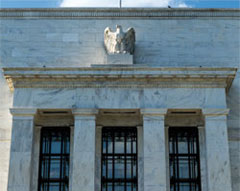Emerging Markets and the Unwinding of Quantitative Easing
The mid-year season was marked by a strong pressure of capital outflows and exchange rate devaluations in several systemically relevant emerging market economies. Announcements in May that the Federal Reserve had started to focus on phasing out its asset-purchase program – otherwise known as quantitative easing or (QE) sparked a surge in bond yields that in turn triggered an asset sell-off in those emerging markets. Although subsiding in September, particularly after the Fed announced that “tapering” would not begin yet, concerns remain about what will happen when the actual unwinding of QE eventually unfolds. We argue here that events since May could ideally provide a “fire drill” that might induce emerging markets to address various policy shortcomings that have been exacerbated by the flood of global liquidity in the last few years.

